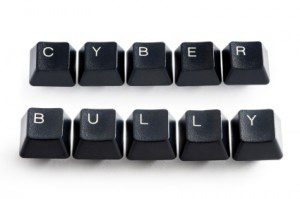 NEW: Listen to me read “Cyber Bullying”.
NEW: Listen to me read “Cyber Bullying”.
Social media isn’t always so social. In fact, it can be downright anti-social. Of course, much of this has to do with how people use it. But there is also something built in to various forms of media that shape us in certain ways.
For one, there is often an undue sense of immediacy and familiarity with social media. People feel comfortable barging into other people’s lives (especially those they don’t know) on their Facebook pages and in other spaces and forums on the internet in ways they wouldn’t do going to their houses and walking right in through the front door without knocking or ringing the bell. They feel they have the right to accuse, taunt, and threaten, and at any moment. All it takes is a few clicks on a keyboard. No one ever has the right to make false accusations, insult, taunt, and threaten, whether in person or online. Still, some think they can do it, especially online; perhaps they think they can say what they want because they believe they really know someone, even someone they have never met because they have access to certain profile features and other details, many of them superficial. One fear I have with this form of online familiarity that breeds contempt is that at some point people fail to make the distinction between virtual and actual: they may eventually move from attacking with words to attacking with fists and sticks and stones, when they actually do meet those they’ve bullied online.
There is also a false sense of anonymity with various forms of social media. People can hide behind aliases and take shots in virtual space behind cover. Or even if they use their real names, you can’t see them. They may even hide their identity through non-descript pictures that do not include them. Often people fail to recognize that everything they post is permanent, even if they delete it. It might hurt their chances at getting jobs or getting dates or getting on after the damage has been done. Their sense of anonymity is as false as the aliases they use.
Some people gain a sense of superiority over others. As one teenager told me in reflecting on the problem, people are much tougher behind their keyboards than in person. They feel that they can hide behind their computer screens. They also rely on a vast network of their friends to back them up instantly online. Such actions on their part coupled with their sense of superiority do not come across like courage and security, but as cowardice and inadequacy to me.
Don’t get me wrong. I love social media. I use Facebook and Twitter and engage in other forums online. Still, we need to guard against abuses and do our part to protect people from harm when social media turns ugly. The tragic story of Amanda Todd is so disturbing. If only people had come around her to defend her from those who attacked her online. We all need to do our part to make sure that social media truly is social. Some steps are already being taken. What parts can you and I play? How shall we proceed?











